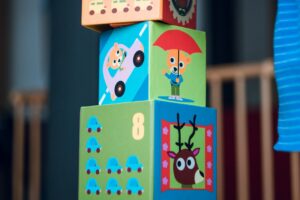
Early Childhood Education
- Posted by mandarinteacher
- Categories Blog
- Date October 20, 2022
The Benefits of Bilingual Early Childhood Education
Introduction to Bilingual Early Childhood Education
Bilingual young child education is gaining significant attention as more parents and educators recognize its numerous benefits. The early years of a child’s life are crucial for cognitive and language development, making it an ideal time to introduce bilingualism.
Cognitive Advantages
One of the primary benefits of bilingual early childhood education is the cognitive boost it provides. Children exposed to two languages from a young age tend to have better problem-solving skills, enhanced memory, and improved multitasking abilities. These cognitive advantages are not only beneficial during childhood but also carry into adulthood, providing a strong foundation for lifelong learning.
Cultural Awareness and Sensitivity
In addition to cognitive benefits, bilingual education fosters cultural awareness and sensitivity. Learning a second language exposes children to different cultures, traditions, and perspectives, promoting open-mindedness and empathy. This cultural enrichment helps children become more globally aware and accepting, preparing them to thrive in an increasingly interconnected world.
Enhanced Academic Performance
Research has shown that children who receive bilingual early childhood education often perform better academically compared to their monolingual peers. The skills acquired through learning two languages, such as improved concentration and better analytical thinking, translate into higher academic achievement across various subjects. Bilingual children tend to excel in reading, writing, and mathematics, underscoring the long-term educational benefits of early bilingual education.
Early Childhood Education
Early childhood education offers a myriad of advantages, to help children get great performance.
Conclusion
Bilingual early childhood education offers a myriad of advantages, from cognitive improvements to cultural enrichment and enhanced academic performance. By investing in bilingual education during the formative years, parents and educators can equip children with the tools they need to succeed in a diverse and globalized society.
You may also like

You Learn Mandarin with Mandarinteacher.hk?

